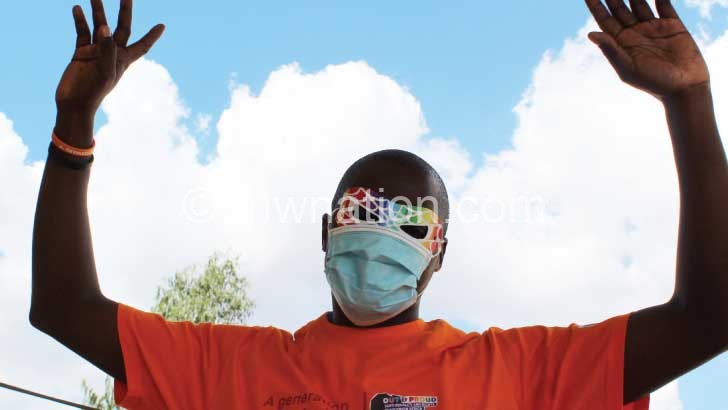Religiously undeterred
LGBTI Christians in Malawi are silently confronting exclusion in places of worship, our Staff Writer JAMES CHAVULA narrates.
Hushed hymns. Fervent sermons on unconditional love. Frequent ameeeeeen! Some members of sexual minorities opposed to hate speech in Blantyre are secretly going door-to-door to worship God away from judgmental eyes.
Lesibian, gay, bisexual, transgender, intersex and queer (LGBTIQ) people in Malawi face rampant discrimination and run the risk of being jailed for up to14 years.
The LGBTIQ Christians, united under Rainbow Faith Fellowship, are worshipping in the secrecy of their homes to avoid degrading treatment in public gatherings.
“The fellowship founded in 2017 helps us reconcile our belief in God who created us in his likeness and tour sexual orientation which exposes us to denial and violent attacks,” says group leader disguised as Yamikani Phiri, 39.
He cofounded the mobile religious movement with 11 members of the underground community in escape from discrimination in churches. The founders mostly grew up in Christian families which prayed not only on Sunday, but also before meals, going to bed and getting to work.
“However, I faced denial everywhere I went,” said one of them. “At church, they didn’t welcome me. Instead, they twisted their faces and pointed fingers at me, saying I was a sinner. When stopped praying, it didn’t bring me peace either.”
For them, the rainbow has become a symbol of diversity.

“The Bible teaches us to love each other, but this is not what we experience when we go to pray with our brethren,” Yamikani says.
Mutual trust
The small Christian community meets once a month, hopping from one home to another as do home cells called mphakati or mlaga in some churches.
“We only go to homes that are safe, usually those owned by independent members of the community. We trust each other and take necessary measures to protect each other.”
The covet faith community of 60 cautiosly shares prayer venues and schedules using mobile phones.
Its attendance has more than quadrupled since its inception.
During the meetings, they share experiences and solutions to challenges associated with their sexual orientation.
Phiri states: “It is growing steadily and the solemnity of the gatherings illustrates that LGBTIQ people love God and each other. We believe God is the only solution, so we praise him and invoke His name. He created us this way.
“When one suffers violence, we give them counsellig and refer them to service providers, including the police and courts.
Members of the community urged against abuse of scriptures to victimise sexual minorities, arguing the word of God is there to liberate everyone, not to give anyone authority to victimise them.
Since the public engagement of Malawi’s first gay couple in 2009, religious leaders have spoken against the LGBTIQ community.
From an archbishop calling them “alien to Malawi” to a Pentecostal pastor raking them “worse than the devil himself”, sexual minorities in Malawi face religious rejection.
Former Peoples Party spokesperson Kenneth Msonda was dragged to court in an aborted case for saying gays and lesbians were “worse than dogs” and should be killed.
Dr Jones Mawerengera, head of Theology and Religious Studies at the University of Malawi’s Chancellor College, says: “LGBTIQ people are human beings created in the image of God and that they are yearning to be spiritually connected with their Creator.
“This development also tells us about the religious exclusion faced by LGBTIQ people in various spaces of worship. They feel that they are being discriminated against by not being fully embraced in various religious spaces and given the opportunity to participate in the life and mission of the Church.”
Fragile relief
In 2012, Malawi announced a moratorium on laws blamed for fuelling arbitrary arrests, hate speech and violence against sexual minorities.
Rainbow Faith Fellowship members say the halt endorsed in 2015 by then Minister of Justice Samuel Tembenu has not ended unfair treatment triggered by colonial laws and religious fanaticism.
LGBTIQ rights campaigner George Kachimanga, from Nyasa Rainbow Alliance, says the clandestine prayer sessions mirror a desire to break free.
He states: “The fellowship is a positive step because it shows that LGBTIQ people are humans like any other. They have faith in God, they turn to him for solutions to their problems and they want to worship without anyone judging them.”
“They wouldn’t be meeting in secret spaces if the environment was enabling to freedom of worship. Who would go back to a gathering where everyone treats you as a lesser being?”





